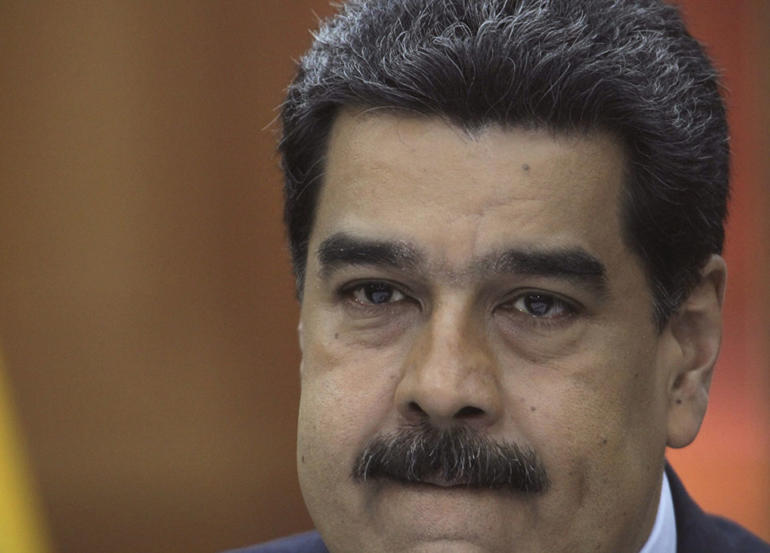Venezuela’s President Nicolas Maduro will be sworn for a second term on Thursday. But many in the country, and around the world, question the legitimacy of his presidency.
The United States, European Union, and a bloc of Latin American countries are refusing to recognize the election results.
CGTN’s Juan Carlos Lamas filed this report from Caracas.
As he prepares to take the oath of office for a second time, Maduro is lashing out against international criticism that’s calling his re-election illegitimate.
“Foreign governments cannot pretend to rule in Venezuela,” Maduro said. “They cannot hope to decide which institutions here are legitimate and which ones are not.”
Maduro’s new six-year term starts as Venezuelans continue to cope with an economic collapse. Annual hyperinflation has topped a million percent, and is expected to reach 10 million percent this year. Maduro has presided over that collapse.
Venezuela’s opposition-controlled National Assembly boycotted the presidential elections, with many of the best-known opposition leaders under house arrest or barred from running. The new head of the National Assembly promises to push for new presidential elections. So far, however, there have been no details on how he plans to make that happen. Maduro has already been looking to China, Russia, Iran, and Turkey for support.
Millions of Venezuelans have fled the country, hoping to escape the downward-spiraling economy. For those who remain, the forecast is record hyperinflation.
 CGTN America
CGTN America
 Venezuela’s President Nicolas Maduro holds a press conference with foreign media at Miraflores presidential palace in Caracas, Venezuela, Wednesday, Jan. 9, 2019. Maduro will be sworn-in for a second, six-year term on Thursday. (AP Photo/Boris Vergara)
Venezuela’s President Nicolas Maduro holds a press conference with foreign media at Miraflores presidential palace in Caracas, Venezuela, Wednesday, Jan. 9, 2019. Maduro will be sworn-in for a second, six-year term on Thursday. (AP Photo/Boris Vergara)
